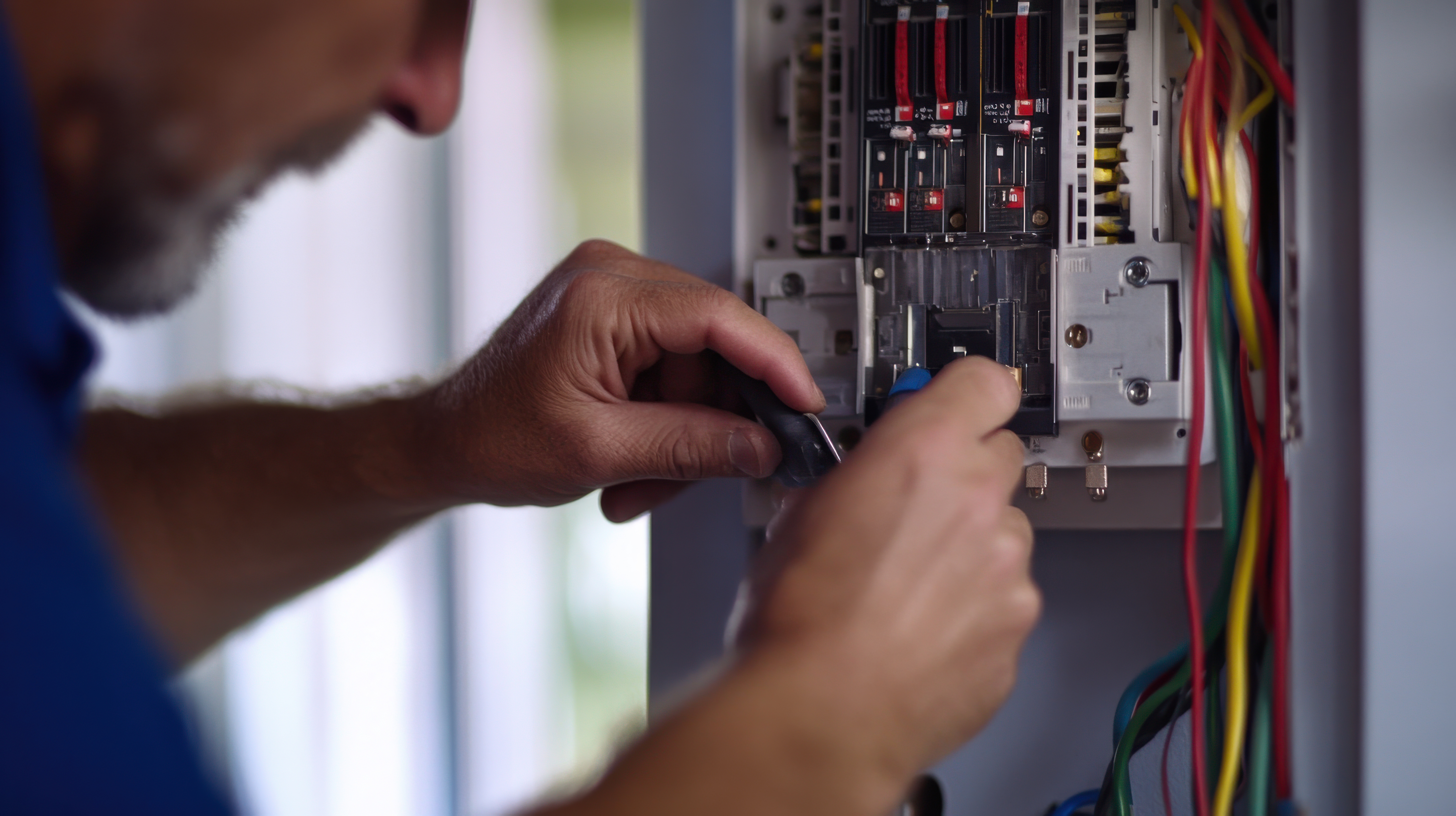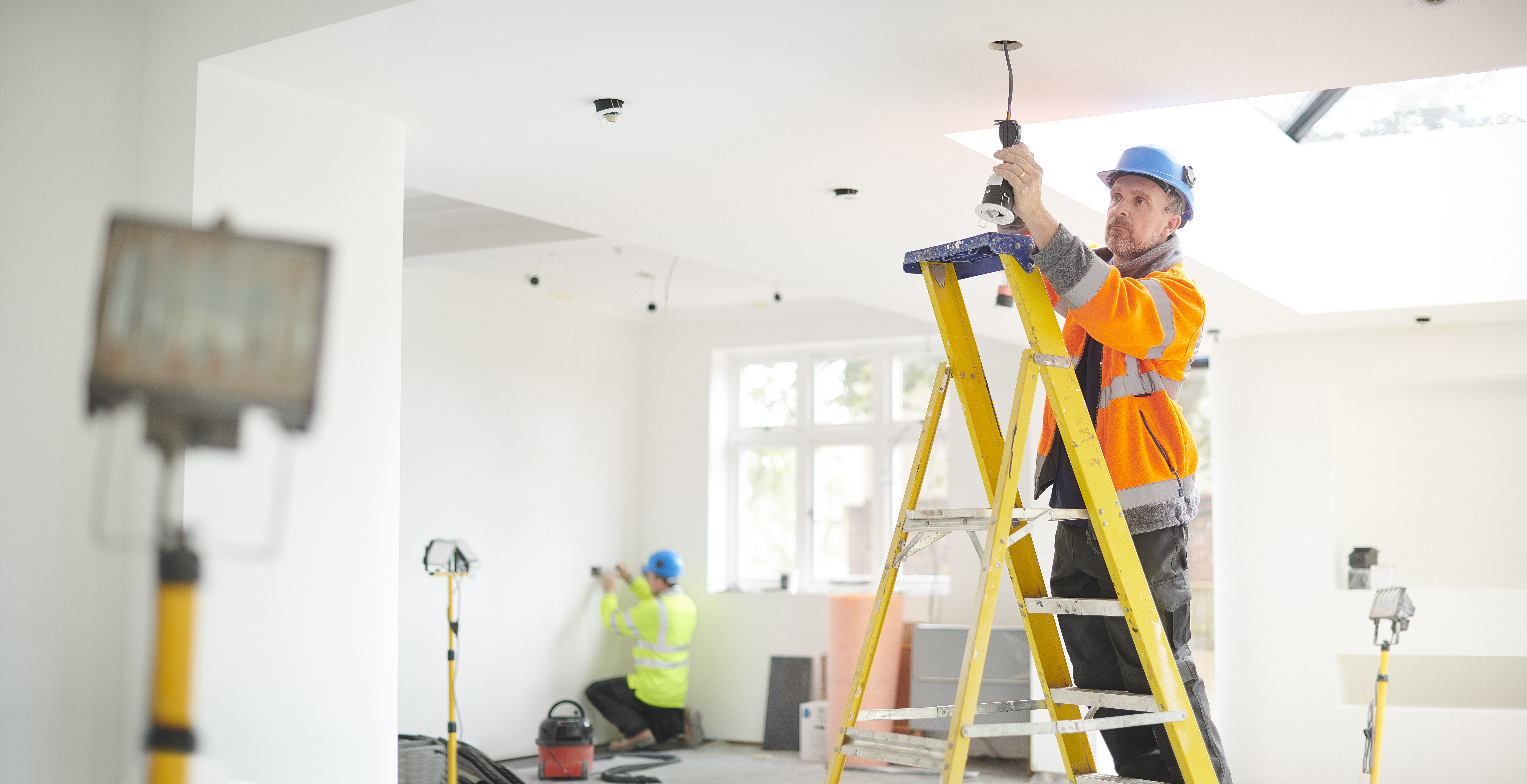
How much does an electrical box replacement cost in Atlanta? Learn what affects the price and how much you can expect to pay.
Put a cap on electrical wire hazards with these steps
If you’re wiring a house or embarking on a major remodeling project, you’ll likely encounter exposed electrical wires that can create a serious hazard if left uncovered. Learning how to cap off electrical wires ensures the exposed ends are covered, preventing electrical shocks, short circuits, electrical fires, and possible damage to your home’s electrical system.
As with any project involving electrical work, safety is paramount, and it’s best to hire a professional electrician rather than doing it yourself. However, if you have electrical experience, it’s possible to cap wires safely by following a few steps and using the right tools. Here’s how to cap off electrical wires safely and effectively.
Complex, high-risk projects demand more than typical DIY projects. They require time, specialized tools, and trained expertise to make sure the job is done safely and correctly. We made it easy for you to find a local pro—with our skilled network, you'll get the job done without the stress of doing it yourself or significant safety risks.
It’s crucial to shut the power off at the circuit breaker before capping off electrical wires. This important electrical safety tip eliminates the potential for electrical shock and helps create the safest possible environment for working with the wires.
After you’ve shut off the power, it’s also important to use a non-contact voltage tester to ensure there’s no charge in the wires you’re planning to adjust. Once your meter reads 0, you can proceed to the next steps.

Once you’ve shut the power off at the breaker and double checked there is no electrical charge in the wires, use wire cutters to trim the ends of the wires until they are flush with their protective casing. This step will provide you with a straight section of conductor to work with, ensuring a secure connection.

Using wire strippers, carefully strip away roughly one inch of insulation. To strip the wire, place the wire in the appropriate stripping notch of the wire strippers, squeeze the handles, and pull the strippers toward the end of the wire. It may take a few attempts to completely strip the wire.

Next, take a wire nut that corresponds with the size and quantity of the wires you’ll be capping off. Hold the stripped ends in one hand, and use the other to screw the wire nut clockwise over the stripped ends. Once the nut is in position, tug gently to ensure the wires are held together firmly.

To provide another layer of protection, wrap electrical tape tightly over the wire nut and connected wires. Start a few inches away from the wire nut and continue wrapping, extending it beyond the nut onto the insulated section of the wires.

Lastly, repeat the previous two steps for each wire until every wire is securely capped. If the capped wires are in a device box, such as an electrical outlet box or junction box, then it’s necessary to install a blank cover to comply with National Electrical Code (NEC) regulations.
When it comes to any project involving electrical wiring, it’s always best to enlist the expertise of a licensed local electrician. While capping off electrical wiring might seem like a fairly straightforward task, it can still be very hazardous, and safety should always be the top priority.
By hiring a professional electrician, you can be assured that the job is done safely and correctly. Keep in mind that hiring an electrician costs an average of $50 to $100 per hour.
From average costs to expert advice, get all the answers you need to get your job done.

How much does an electrical box replacement cost in Atlanta? Learn what affects the price and how much you can expect to pay.

How much does it cost to add an electrical outlet in Atlanta? Learn about average prices, local permits, and what impacts the cost in the Atlanta area.

Wondering what rewiring a house costs in Atlanta? Find out what drives the price and how to plan for this important electrical upgrade in your area.

If your plugs are sliding out halfway after you insert them into the outlet, this is a fire hazard. Learn how to fix loose outlets in your home.

Learn how to install a coax outlet to save money and clean up the tangle of wires in your entertainment room or living room.

Wondering who to call for a fast and easy lamppost installation? Our guide covers who should install a lamppost and the general cost for this project.